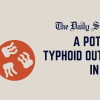Safe food still a far cry in Bangladesh

Food safety has always been a big issue in Bangladesh with the departments responsible for ensuring food quality failing to play the role expected of them. While not much research has been done to know if what we eat every day is safe for consumption, the few studies that were done came up with dangerous revelations. One such study, conducted by the Dhaka University's Institute of Nutrition and Food Science and BRAC University's James P. Grant School of Public Health, has found that around 67 percent of bottled soybean oil in the local market contain trans fatty acids (TFA) above tolerable limits for human body; the level of trans fat in loose soybean oil is even higher. This is worrying as high levels of trans fat in food can cause long-term damage to health, including via high blood pressure and heart diseases.
Reportedly, in 2021, the Bangladesh Food Safety Authority formulated a policy to control trans fat in food products with the maximum tolerable level set at 2 percent. However, the recent study—done on 1,521 oil samples collected from each division—found their trans fat levels to be two to four times higher than expected levels. This means people who have been consuming the oil for years are likely already severely affected. This is, unfortunately, just one example of how we are consuming toxic food without even knowing about it.
In the past, we came across studies that found harmful heavy metals in pasteurised milk and turmeric powder. We do not know if anything has been done to improve their quality later. Food adulteration in general remains a big concern: from vegetables, fish and fruits to sweetmeats, ice cream or spices, nothing is safe. Packaged and bottled drinks mixed with harmful chemicals are reportedly being sold freely. Meanwhile, the quality of water supplied by Wasa remains a headache. The damage that such unsafe food products can cause is unimaginable.
But do our authorities care about public health? Every year, around 80,000 people die due to air pollution related diseases. Has anything substantial been done to check this? One can ask the same about dengue and other seasonal or long-ignored health threats.
The fact is, we cannot build a prosperous nation if the majority of the people are in ill health. We urge the authorities to give proper attention to public health. The presence of trans fat in food items is one of those threats that have long-term implications and, therefore, must be addressed seriously. The authorities must conduct regular inspection of all food products and ensure they are safe to consume.


 For all latest news, follow The Daily Star's Google News channel.
For all latest news, follow The Daily Star's Google News channel. 









Comments